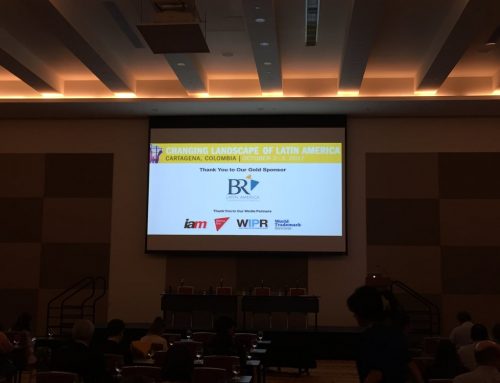
A common issue when providing legal representation and advice to start-ups and entrepreneurs is to find trademarks that were not created taking into account the legal side of the trademark’s wording and design. The creative process that produces a mark is often regarded exclusively from the standpoint of its marketability, the message it sends to consumers and its relation to the products or services that the company provides. However, this is a deeply flawed method. As any experienced company in protection and management of IP assets will tell you, your attorney should be by your side from the very moment when you decide to create a trademark.
The ultimate goal of any IP assets is to generate renevue. Early legal advice will not only reduce litigation costs (since the chances of getting your application opposed, or denied, will be greatly reduced) but it could also improve the competitive advantage that your trademark provides. In short: Early legal advice will provide a greater profit margin for you.
Therefore, our advice for you is to:
1. First listen, then trademark
It is highly advisable to consult your attorney during the creative process for the mark. This will help you detect similar or un-registrable trademarks in the early stages of the process.
It is important to remember that not all words and not all signs may be registered as trademarks. In addition, if you provide services or sell your products in several countries, the added legal complexity of different jurisdictions (with different requirements and standards) should be taken into account when you trademark your products/services.
2. Be flexible
Allow us to emphasize that: you really need to be flexible. A very common issue in a Trademark Law practice is to find trademark owners who have grown emotionally attached to their marks, and disregard the legal drawbacks of that particular mark.
Therefore, if your attorney considers that the best option is to modify your trademark (either by changing the wording or adding a logo, for example) it is probably best to listen to him. This will ultimately result in reduced litigation costs for you.
3. Be creative
This may seem to be an obvious thing, but it’s one of the golden rules to having a healthy portfolio of IP assets.
This includes minding the wording of the trademark as how it relates to your field of work. For example, if you own a Tech company, avoid trademarks that include “Tech”, “Tec”, “Tek” or “Teq” in their wording. Your chances of getting your application opposed or denied will be significantly high. Take, for example, the trademark “Apple” for a hardware and software company: Although it is a commonly used word, it is not related in any way to their field of business, and the chances of finding a similar trademark belonging to a similar company are very low.
And finally, if you have no option but to use a wording closely related to your field of business, it is advisable to add a logo. The chances of finding two similar logos are much lower than it is with wordmarks.
For any additional advices or recommendations for the early stages of creation of your IP assets, feel free to contact us. And remember: Your IP is not ‘accessory’ to your business, having a healthy IP portfolio and a strong strategy for management of your IP assets often marks the difference between winners and loser in the business world.



